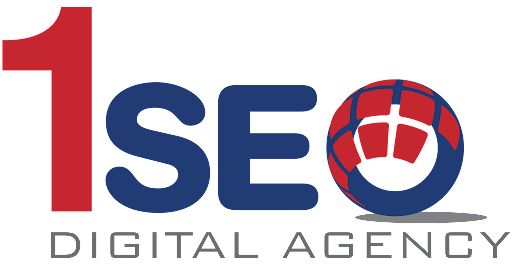Types of Web Development
Web development can be categorized into several types, each with its own unique characteristics and requirements. Understanding these types can help business owners make informed decisions about their website needs.
The Web Development Process
Developing a high-quality website involves a detailed and methodical process. Here’s an overview of how professional web developers approach a web development project:
1. Planning and Strategy
Identifying goals and audience.
Outlining the web development process.
Choosing the right tools, such as HTML, CSS, and JavaScript.
2. Design
Creating wireframes and prototypes.
Developing visually appealing designs using CSS and JavaScript libraries.
Ensuring a consistent and user-friendly layout.
3. Development
Writing HTML code for structure and front-end code for interactivity.
Implementing server-side logic using server-side scripting languages like Python or PHP.
Building reusable UI components for scalability.
4. Testing and Deployment
Testing the website’s functionality across multiple devices and browsers.
Ensuring user authentication and implementing robust security measures.
Deploying the site on reliable hosting services.
5. Maintenance and Updates
Monitoring website performance.
Updating content and features as needed.
Securing data to protect against cyber threats.
Key Technologies Used in Web Development
Modern web development requires a deep understanding of tools and technologies that ensure websites are efficient and secure. Here are some of the most important elements:
Programming Languages
Web developers use a combination of markup languages, object-oriented programming languages, and scripting languages to create functional websites. Common examples include:
HTML and CSS: Building blocks of web design and layout.
JavaScript Code: Adds interactivity and dynamic content.
Server-Side Scripting Languages: Powers the back end, including PHP, Ruby, and Python.
Databases
To store data, developers use both traditional relational databases (like MySQL) and NoSQL databases (like MongoDB) for flexibility and scalability.
Front-End and Back-End Development Tools
APIs and Web Services
Developers integrate application programming interfaces (APIs) and web services to add advanced functionality, such as payment processing or third-party integrations.
Web Development Services
Web development services encompass a wide range of tasks and activities involved in creating and maintaining a website. These services are crucial for ensuring that a website is functional, secure, and user-friendly.
Additional Topics in Web Development
Web development encompasses a broad range of tools, techniques, and strategies that ensure websites are not only functional but also secure, engaging, and scalable. Business owners in Nashville can benefit significantly by understanding how advanced features and methodologies can elevate their web pages and overall website development projects. Below, we dive deeper into several critical topics that can enhance your site’s performance and user experience.
Enterprise-Level Web Applications
For businesses with large-scale operations, enterprise-level web applications are essential to managing complex tasks efficiently. These applications are designed using robust web development practices and tools to offer advanced functionality and handle high user traffic.
Key features of enterprise-level web applications include:
Advanced Database Management: Combining traditional relational databases like MySQL with NoSQL databases, developers can store data efficiently and provide rapid access to vital business information.
User Authentication and Security Measures: Securing sensitive data is critical. By using server side scripting languages and implementing multi-layered user authentication, businesses can safeguard user access to sensitive systems.
Real-Time Interactivity: Features like live updates and data processing ensure users have up-to-the-minute information, whether they’re interacting with your web content or managing a backend system.
By partnering with skilled web developers and full stack developers, businesses can build secure web applications that streamline operations and provide unparalleled reliability.
Creating Reusable UI Components
Developers often create reusable UI components to enhance the efficiency and consistency of a website. These components—modular pieces of code that can be used across multiple sections of a site—are invaluable in the web development process.
Why are reusable UI components important?
Streamlined Development Process: Reusing elements like buttons, forms, and menus saves time when writing code, enabling quicker completion of web development projects.
Consistency in Web Design: These components ensure a uniform look and feel across all web pages, enhancing the overall user experience.
Cost-Effective Development: By reducing redundancy in front end development, businesses can minimize development costs while maintaining high-quality interfaces.
For Nashville businesses aiming to create visually appealing and efficient websites, adopting reusable UI components is a practical and scalable solution.
Securing Data and Enhancing User Authentication
The security of your website is paramount, especially as businesses increasingly rely on interactive features and web applications to handle sensitive information. Incorporating robust security measures into your web development strategy is essential for protecting both user and business data.
Key practices for securing data include:
Encryption: Using encryption protocols to secure the data transferred between the web server and the client’s browser ensures information remains private and tamper-proof.
Server Side Logic: Implementing server side code to validate user input and restrict unauthorized actions is crucial for maintaining site integrity.
User Authentication Features: Adding multi-factor authentication to web applications strengthens security by requiring users to verify their identity through multiple steps.
Whether you’re building static websites or responsive websites, investing in security helps prevent breaches and ensures compliance with data protection regulations.
Creating Interactive Web Pages
Modern users expect websites to be dynamic and engaging, which is why interactive web pages are critical. By incorporating interactive elements and leveraging tools like JavaScript code and cascading style sheets (CSS), developers can create experiences that captivate users.
Examples of interactive features include:
Dynamic forms that adapt based on user input.
Live chat interfaces powered by application programming interfaces (APIs).
Interactive menus and visual elements that respond to user actions.
By combining HTML, CSS, and JavaScript, developers can design interactive experiences that drive user engagement and boost conversions.
The Role of APIs and Web Services
Application programming interfaces (APIs) and web services are integral to modern web development projects. APIs allow websites to integrate with external systems, such as payment gateways, analytics tools, and third-party applications, to enhance functionality and provide a seamless user experience.
For example, incorporating a weather API can display real-time weather updates on your site, while a payment API can streamline online transactions for e-commerce platforms. Using APIs ensures that your web development team can deliver versatile and powerful web applications that meet your business needs.
Enhancing User Experience with Responsive Websites
Creating responsive websites is essential in today’s mobile-first world. Responsive web design ensures that your site’s content looks great and functions seamlessly on any device, from desktops to smartphones. This is achieved by using front end code that dynamically adjusts the layout based on screen size.
With tools like cascading style sheets and frameworks such as Bootstrap, front end developers can ensure your website is both visually appealing and user-friendly. A solid understanding of responsive design principles is crucial for building user interfaces that work across all platforms.
Building with a Full Stack Approach
For businesses seeking end-to-end solutions, working with full stack developers provides the advantage of comprehensive expertise in both front end web development and back end development. These professionals handle everything from creating engaging user interfaces to writing efficient server side logic and managing complex databases.
Front End Web Developers: Focus on the look and feel of your website, ensuring it’s visually appealing and intuitive.
Back End Developers: Handle the behind-the-scenes functionality, such as coding skills for database management and server-side scripting languages.
Together, full stack development teams can deliver high-performance websites and enterprise-level web applications that meet your business needs. Web development courses help developers stay updated with the latest technologies and practices, ensuring they can provide the most current and effective solutions.
By leveraging these additional web development topics, Nashville businesses can create cutting-edge websites that are secure, engaging, and tailored to their audience. Partnering with skilled web designers and developers ensures your website stays ahead of industry trends while providing an exceptional user experience.
Why Nashville Business Owners Should Partner with 1SEO Digital Agency for Web Development
For business owners in Nashville, partnering with 1SEO Digital Agency is the smartest move you can make for your online presence. With years of experience delivering exceptional web development services, 1SEO understands the unique needs of businesses in the area and offers tailored solutions to help you achieve your goals. Here’s why you should choose us for your next web development project:
Comprehensive Expertise: From creating stunning, responsive websites to building secure and scalable web applications, our team excels in both front-end development and back-end development, ensuring a seamless user experience.
Cost-Effective Solutions: At 1SEO, we optimize the web development process to provide high-quality results without exceeding your budget.
Customized Strategies: We take the time to understand your brand, audience, and business goals to craft a website that sets you apart in Nashville’s competitive market.
Reliable Support and Maintenance: Our team is here to assist you long after your site goes live, offering updates, performance monitoring, and security measures to keep your website running smoothly.
Local Market Insights: As a digital agency with experience working with Nashville businesses, we know what works for your audience and how to design a website that resonates.
When you partner with 1SEO Digital Agency, you’re not just getting a website—you’re gaining a dedicated partner who’s committed to helping your business thrive. Let us help you take your online presence to the next level with professional, reliable, and innovative web development solutions tailored to your needs.
Taking Your Business Online with a Stunning Website
As a business owner in Nashville, partnering with experienced web designers and developers is a smart investment. With expertise in both front-end web development and back-end development, professional teams can create a website that not only meets but exceeds your expectations. From crafting interactive elements to integrating secure web applications, the possibilities are endless.
Start your journey today by discussing your web development projects with a trusted Nashville team. By focusing on the user interface, responsive design, and robust functionality, you can create a website that stands out in today’s competitive market.
Contact us now to learn more about our services, tools, and technologies. Let’s build a website that helps your business thrive!














